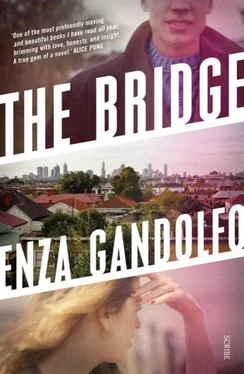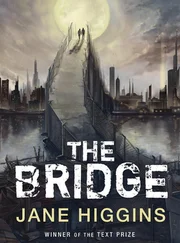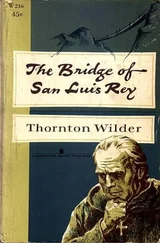‘I was angry. I was in shock. I don’t hate you,’ Mandy said.
‘It was the worst moment in my whole life. I wanted to die. And you came and I wanted to run into your arms, and for you to hold me, but you didn’t want to have anything to do with me. The sight of me made you cringe. I understand. I hate myself. But you’re… you’re my mother… and I didn’t expect that.’
‘I don’t hate you.’
‘You don’t love me. Not anymore. You’ve loved me all my life. Didn’t you think I’d notice when you stopped?’ The word love wedged itself between them, flaunted itself, as they sat defeated in the messy kitchen. After a while, Jo stood up and went to the sink. She stacked all the dirty dishes to one side and filled the tub with warm, soapy water. Mandy wasn’t the same woman who promised unconditional love to her five-year-old daughter. Jo wasn’t the same daughter.
She turned to face Mandy. ‘I had a job in a restaurant in Portarlington. I stayed in a hostel. I worked long hours. Some days I went for a swim. Most days I went for long walks. I tried to avoid people. I kept to myself. But a couple of people, well, you know… People get to know you and start asking questions. They wanted to know about me, my life, why I was in Portarlington. I couldn’t tell anyone, so I left. I couldn’t tell them, but I couldn’t keep lying.’
‘I don’t hate you. I care about you. I was so worried. You didn’t even ring for Christmas,’ Mandy said.
‘I’m sorry. I wanted to avoid Christmas. I sent you a text.’
‘I care about you.’
‘Of course,’ Jo said. ‘I know.’ But Jo didn’t believe it. She’d expected her mother’s love to be unconditional — wasn’t that what people said about parents, they loved you unconditionally? She’d learnt early on that her father’s love was fickle and conditional and easily forgotten. Now she knew her mother’s love had limits and there were things even a mother found difficult to forgive.
‘I’ve no idea how to steer us through this,’ Mandy said, getting up and taking a clean tea towel out of the drawer to dry the dishes as Jo washed.
‘It’s not up to you.’
‘Can you explain to me…’ Mandy began.
‘Explain what?’
‘How you feel. What you’re thinking?’
There were no tears on the night of the accident, as Jo sat trapped in the car. No tears when they told her Ash was dead. No tears at the police station, even with all the questions and the badgering. No tears the day of Ash’s funeral, or on any of those long nights when she couldn’t sleep and Ash’s voice was loud in her head. She’d wanted to cry, but there’d been no tears; a dry, desolate tract, parched and barren. Now she was sobbing. And shaking. She had to stop washing the dishes and sit down.
Mandy passed her a box of tissues. She made her a cup of tea. She brought her a blanket and wrapped it around her shoulders.
Through her tears, Jo considered her mother, a woman she no longer recognised. Maybe she’d never seen her mother — for years they’d been two bodies circling around each other, not connecting, mostly antagonistic. She didn’t know anything about this mother. All Jo’s life, her mother had been doting and loving, ever-present. Other mothers would run late for school pick-ups, but Mandy was always on time. Other mothers went out at night and left their children with babysitters, but Mandy rarely went anywhere without Jo. And then there was the mother she avoided, found embarrassing, didn’t listen to, couldn’t confide in. Did her mother long for another life? A career? A relationship?
‘Let’s get out of here,’ Mandy said.
‘It’s midnight.’
‘I know.’
The silent, cold air hit Mandy as she opened the door. It had been a warm day and she was wearing short sleeves. ‘I’ll get some jackets,’ she said, leaving Jo at the front door, walking down to her room, and grabbing a couple of old windcheaters. On her way back, Mandy took a moment to look down the hallway at Jo. Her daughter was back. Two and a half months she had prayed for her return — she, who wasn’t religious, going with Mary to the Catholic church and lighting candles, sitting with Mrs Nguyễn in her Buddhist meditation group, praying and wishing and hoping. She was on antidepressants. Taking sleeping pills. Drinking more than she should. Working extra shifts at the supermarket. Going crazy. Her feelings for Jo were a poisonous cocktail — anger, grief, guilt, shame — but there was also the relief at Jo’s return home. Was this love?
Mandy steered them out of the house and onto Hyde Street, across Francis Street, and into Stephen Street, away from the bridge. Planning to walk with her daughter as they had often walked when Jo was younger, when walking had loosened Jo’s tongue and she had talked about school, about the teachers and the other girls… Only recently had Mandy begun to wonder if Jo, even then, had kept secrets, and censored her chatter even when it seemed mindless and Mandy thought she was divulging everything. Had she failed to read between the lines, to notice the gaps? Was it possible she didn’t know her daughter? Had never known her? Did other people know their children? Some parents spoke with such authority — my daughter is a deep thinker, my son’s outgoing and popular at school, my child would never do that, he has the determination to get there, she won’t last the distance…
A three-quarter moon glowed behind a thin powder of clouds, giving the night a soft brush. The streetlights shone over the footpath and the road, their beams bouncing off the white trunks of the birch and the gum trees; in the shadows, the houses retreated. They seemed abandoned and neglected, as if their occupants had left under duress, with no time to gather toys or bikes, to pick up discarded jackets and hats, to close shutters, to pull gates shut. In this empty world, Mandy and Jo relaxed into an easy striding — fast enough to keep warm — along the footpaths of the neighbourhood that was now both familiar and unrecognisable.
When a car sped past, triggering a sensor light outside a converted warehouse, the resident dog woke and growled at them. Jo and Mandy returned to their bodies, to discover they were a block away from Ashleigh’s house. Jo stopped. Approached from this direction, the house was partially hidden by several large trees, including an old elm that dominated that part of the street with its broad canopy. But they could see a light was on in Ashleigh’s room, and they could see the rose bushes were gone.
‘In Portarlington, when I first arrived, when they asked me my name, I panicked and said Ashleigh,’ Jo whispered.
‘What?’
‘So the whole time I was there, they called me Ashleigh.’
‘You miss her.’ Mandy reached tentatively for Jo’s hand, shepherding her gently back around the corner.
‘I can’t get her out of my head.’ Her mother’s hand was warm and familiar and almost unbearable. The tears were slow at first, but soon she was sobbing again. ‘You know, when I was in Portarlington and people were calling me Ashleigh,’ she paused to catch her breath, ‘I didn’t… I worried someone would find out. But I didn’t feel bad. I mean, I felt bad because I shouldn’t have used her name, but I also felt better, not so anxious. I felt better, like I was someone else.’
They retraced their steps back down Stephen Street and into Gray Street and then Hyde. There was little traffic, only an occasional car or truck. They passed a cat balancing on a front fence. It leapt to the ground as they approached. They passed a dog sleeping on the front verandah of a small brick house. When they reached the corner of Hyde and Francis, they crossed, walked straight past the house, and headed towards the bridge.
Читать дальше












